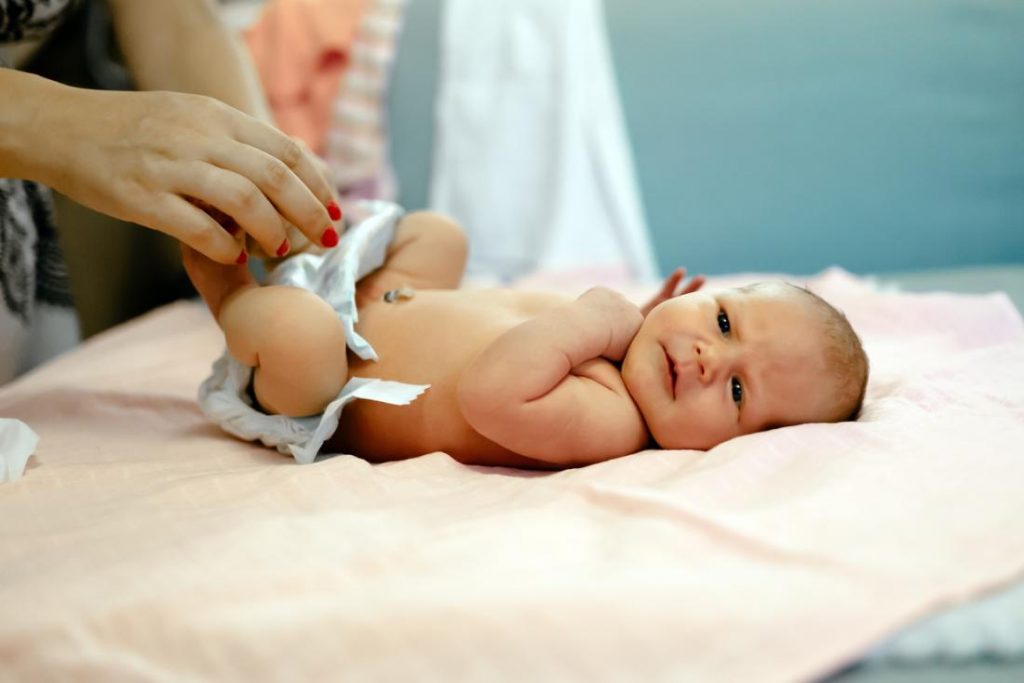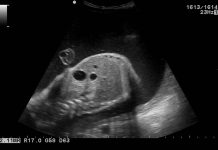Parents are concerned about the health of newborns as many slight or sober signs may turn out to become a serious health issue. One such is the presence of a Sacral Dimple among infants. To understand more about this condition, we will look through the following points:
Read More:Importance of Baby Massage and Its Benefits
In This Article:
- What is a Sacral Dimple?
- Symptoms of Sacral Dimple
- Causes of Sacral Dimple
- Indicators of Abnormalities
- Diagnosis of Sacral Dimple
- Treatment of Sacral Dimple
- Risk Factors associated with Sacral Dimple syndrome
A Guide for Sacral Dimples in Infants
What is a Sacral Dimple?
A Sacral Dimple is a small dent in the skin on the lower back which is usually located above the crease of the buttocks. This is a congenital condition which is rarely associated with any serious spinal abnormalities. But in some cases, a sacral dimple may become a sign of a fundamental spine issue which is usually considered to be a minor one. These are normally accompanied by a tuft of hair in the nearby area or any common skin tag. A pediatrician may recommend an imagining test or ultrasound to examine any serious abnormalities.
Read More:11 Tips to Make Your Baby Skin Fair
Symptoms of Sacral Dimples
A Sacral Dimple can be observed as a tiny pit in the lower back area.
Some major symptoms which mark its presence are given below:
- Minimal discoloration around the region.
- A dimple which is highly significant (deeper than 5mm).
- Sensitivity and Swelling around the area.
- A tuft of hair around the dimple.
Causes of Sacral Dimples
It is usually present since birth which makes it a congenital condition. There is no single genital or biological predisposition responsible for this condition according to scientific research. The reasons behind its formation are still unknown.
Read More:Arthritis in Children: Symptoms, Risks, Treatment and Remedies
Indicators of Abnormalities
Size of the Sacral Dimple
The size is usually evident in indicating to other abnormalities. Small dimples (less than half a centimeter wide) usually indicate that there will be no further disabilities, meaning that there is nothing to worry about baby’s health. In such cases, there is no need for further evaluation.On the other hand, when the dimple is larger, along with certain other indicators like a tuft of hair or swelling, it becomes a serious health concern. Such cases require a proper evaluation from the doctor’s side.
Depth of the Sacral Dimple
Along with the size, the depth is also an important indicator.If the dimple is shallow plus small in size, there is no requirement of further diagnosis. It is considered to be normal. On the other hand, if the dimple is deep, it becomes an extension to the spinal cord. Medical tests and ultrasound are required to draw out further possibilities for the development of any disability. The evaluation will tell whether the dimple attaches itself to the spinal cord. Deeper dimples may also be responsible for skin problems like rashes, infections, etc.
Marking around the Sacral Dimple
Discoloration and any significant markings around Sacral Dimple accompanied by swelling should be medically diagnosed through MRI, ultrasound, etc. Through this doctor will be able to determine the seriousness of the dimple and whether it is harmful to the baby’s health. But in most of the cases, sacral dimples are benign and do not result in any serious health issues.
Complications of Sacral Dimples
Mostly, the presence of Sacral Dimple does not indicate any abnormalities. But in the rarity of 3%-5% cases, it may point towards certain serious spinal cord problems which may become major health deteriorating factor in future. Few of the key complications are mentioned below:
Spinal Structure Problem
Spina Bifida- It is a condition wherein the spine does not close fully around the spinal cord. Symptoms are difficult to diagnose without clear examination. Usually, a spinal dimple is considered to be the cause of this issue.
Tethered Cord Syndrome in the Baby
This is a condition wherein a part of the spinal cord attaches itself to the outer tissue. This further results in certain minor disabilities, like the inconsistency of the bowel movement, weakness of limbs, urinary issues, numbness in the lower parts of the body. This also restricts all the possible movements in the baby.
Diagnosis of Sacral Dimples
Depending upon the physical indicators like size, color, depth, etc, a physical examination is important to be undertaken to rule out further implications of the spinal cord. Necessary diagnostic tests include:
Ultrasound
Thi is a non-invasive procedure which includes high-frequency soundwaves. It helps in tracing the structures of the body through processing the images.
Magnetic Resonance Imaging (MRI)
If an ultrasound does not come up with the desired results, MRI may recommend an MRI. It is a more clear method of detecting any implication due to the use of radio waves and a strong magnetic field.
Treatment of Sacral Dimples
For normal cases, treatment is unnecessary but if the diagnosis shows some signs. Treatment involves:
- Draining the infection through a process called “incision and drainage” which was performed using anesthesia. This drains the pus and debris from within the cyst.
- Pit picking is a procedure that involves a side-to-side incision that empties the cyst cavity. During this, all the pits under the skin are removed.
- If the scar tissue is extensive then a need for surgery may arise to remove the abscess. Pilonidal cystectomy helps in clearing the cysts that extend to the spinal cord. Another procedure called Karydakis removes the scarred skin and does not work on the tissues.
Risk Factors associated with Sacral Dimple Syndrome
Following risk factors are majorly known among the doctors:
- The predominance in males is four times more than in females.
- May show serious implication at a young age (mostly in the early 20s)
- Family history has a major role play.
- Overweight babies are more prone to this health condition.
This condition is very common among the newborns. But even the common conditions should never be ignored in case of infants because the lifestyle changes are leading to the birth of many unknown health issues. Therefore, the plans provided by doctors for the newborns are comprehensive and should be undertaken.
Sources:
- https://www.medicinenet.com/pilonidal_cyst/article.htm
- https://www.mayoclinic.org/diseases-conditions/sacral-dimple/diagnosis-treatment/drc-20377357













